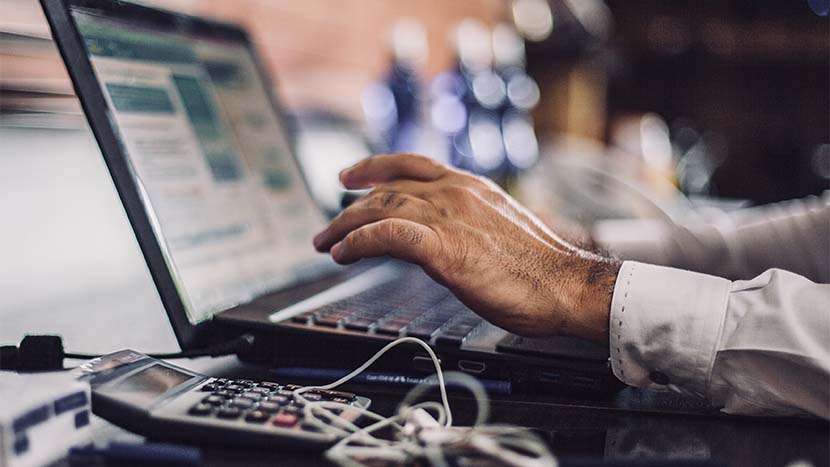How Do You Write a Science Essay without Plagiarizing?
Almost every science class requires you to submit an essay. When you have countless tasks, essays, term papers to do, you could be tempted to compose an essay by copying and pasting someone else’s work. You may plagiarize someone else’s thoughts owing to a lack of expertise or understanding. It’s immoral and dishonest to submit plagiarized material. Today, you’ll find out ways to avoid any trace of plagiarism when writing your essay to achieve the best academic results.

1. Take Your Time
Giving oneself enough time to conduct a thorough study and preventing plagiarizing someone else’s work owing to a lack of time. Before you begin writing an essay, make a list of what you want to include in it. This will assist you in determining how much information from other sources you intend to provide.
In-depth research will also pique your interest in the subject, making it more straightforward to contribute your thoughts when writing an essay. In addition, you’ll be less inclined to plagiarize someone else’s ideas this way. So, make sure you give yourself enough time to do your work and that you devote enough effort to research reputable sources.
It takes effort and attention to compose a free essay of plagiarism. But, even if you believe you cannot create an article that’ll pass the plagiarism test after following the previous methods, you can seek assistance. So, visit DoMyEssay, write my essay for me online writing platform, and get help with any college paper to get an A+ result with 100% uniqueness.
2. Keep a Record of Your Sources
Keep a diary or a notepad accessible before you start writing an essay. Make a list of all the sources you’ve used, including the author’s name, the title of the book or paper, the year it was published, and the appropriate page numbers. When you’re reading numerous books and other reference materials, it’s easy to lose track of whose source each piece of information came from. Having all of your sources’ information in one location might refer easier later on.
It’s critical to ensure that your sources are reliable. A reliable source is free of bias and is backed up by evidence. A reputable person or group writes it, free of ambiguous jargon, buzzwords, and overly emotional or subjective language.
3. Cite Everything Accurately
When writing an essay, it’s essential to cite all sources correctly. When the same information appears in several sources, tracking out the originating source A proper citation includes all the relevant details on the principal source, such as the author. It’s also crucial to use the appropriate citation style. Many academically accepted citation formats, including APA, Chicago, and MLA.
You can pick one of the common styles or find out which one your institution uses. Well-known information won’t be referenced. Facts and common knowledge are not protected by copyright. Each in-text citation should be accompanied by a thorough bibliography or reference list after your paper.
Quotes should be used sparingly in general. When it’s acceptable to use quotes, consider the following:
- Use the original author’s definition in its entirety.
- Rewrite the original text without losing its significance.
- Keep the author’s words’ authority and style.
On the flip side, using your own words to describe a source is known as paraphrasing. It entails more than simply changing a few words in a copied-and-pasted document. To paraphrase appropriately, rephrase the author’s message to show that you understand it completely.
4. Make Your Own Contributions
Add your own views and ideas to the discussion. When writing an essay, don’t rely solely on outside sources. This will show that you have done extensive research on the subject and will help you get a better grade. It won’t be considered your own work if you paraphrase stuff from books and the internet. You must comprehend the subject, study the perspectives of other authors, and contribute your own thoughts to it.
5. Use Plagiarism Detector Systems
Make sure to put your essay through a plagiarism checker after you’ve finished it. Online, various applications can verify your paper for plagiarism in minutes. You have the choice of using either a paid or a free plagiarism detector. Even if you used a plagiarism checker, double-check your work to ensure its uniqueness.
6. Self-Plagiarism Should Be Avoided
If you have previously produced an essay or a paper on the same or a comparable topic, you may believe it is OK to plagiarize from it because it was your own work. However, if that work has already been submitted, you must credit yourself for borrowing ideas from it. Self-plagiarism is when you take something from your own work and don’t credit the author.
7. Make Sure Your Work Is Error-Free
After you’ve finished writing an essay, proofreading may help you uncover plagiarism as well as repair grammatical and typographical issues. When you proofread your essay, you have the opportunity of giving credit where it is due if you may have overlooked anything previously.

Write a Plagiarism-Free Essay
Plagiarism is defined as using another person’s words or ideas without crediting the original author. Plagiarism can occur intentionally, such as when someone steals another’s work, but it sometimes appears accidentally due to carelessness or forgetfulness. You might get in serious trouble at your university if you compose an essay using plagiarized information.
Plagiarism is seen as a severe infraction that might result in you failing the course or being suspended. Plagiarism is a kind of theft, and submitting a plagiarized essay is a form of theft. Apart from the immediate repercussions, plagiarizing might have long-term ramifications on your academic or professional record, putting your future career in jeopardy. When writing an essay, you must guarantee that your work is 100% unique and that any material you borrow from another source is adequately mentioned.
































































































